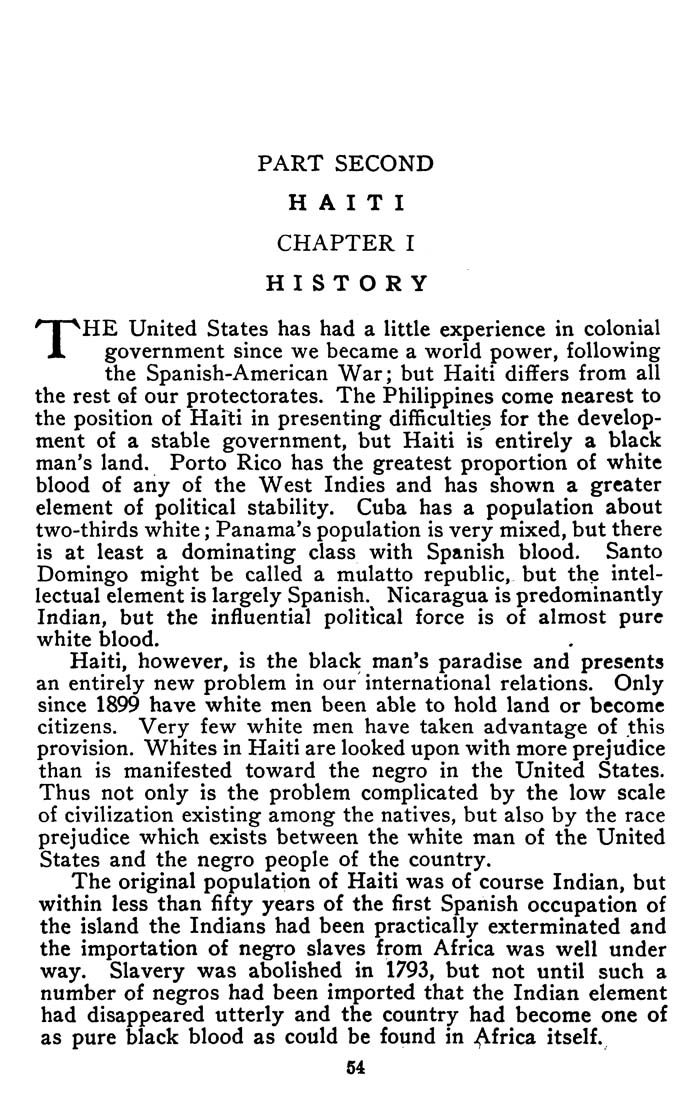Inman, Samuel Guy, Through Santo Domingo and Haiti
(New York City : Committee on Co-operation in Latin American, [1919])
|
||
|
|
|
|
| Page 54 |

PART SECOND HAITI CHAPTER I HISTORY THE United States has had a little experience in colonial government since we became a world power, following the Spanish-American War; but Haiti differs from all the rest of our protectorates. The Philippines come nearest to the position of Hai1:i in presenting difficulties for the develop¬ ment of a stable government, but Haiti is entirely a black man's land. Porto Rico has the greatest proportion of white blood of any of the West Indies and has shown a greater element of political stability. Cuba has a population about two-thirds white; Panama's population is very mixed, but there is at least a dominating class with Spanish blood. Santo Domingo might be called a mulatto republic, but th^ intel¬ lectual element is largely Spanish. Nicaragua is predominantly Indian, but the influential political force is of almost pure white blood. Haiti, however, is the black man's paradise and presents an entirely new problem in our international relations. Only since 1899 have white men been able to hold land or become citizens. Very few white men have taken advantage of this provision. Whites in Haiti are looked upon with more prejudice than is manifested toward the negro in the United States. Thus not only is the problem complicated by the low scale of civilization existing among the natives, but also by the race prejudice which exists between the white man of the United States and the negro people of the country. The original population of Haiti was of course Indian, but within less than fifty years of the first Spanish occupation of the island the Indians had been practically exterminated and the importation of negro slaves from Africa was well under way. Slavery was abolished in 1793, but not until such a number of negros had been imported that the Indian element had disappeared utterly and the country had become one of as pure black blood as could be found in ^frica itself. 54 |
| Page 54 |







